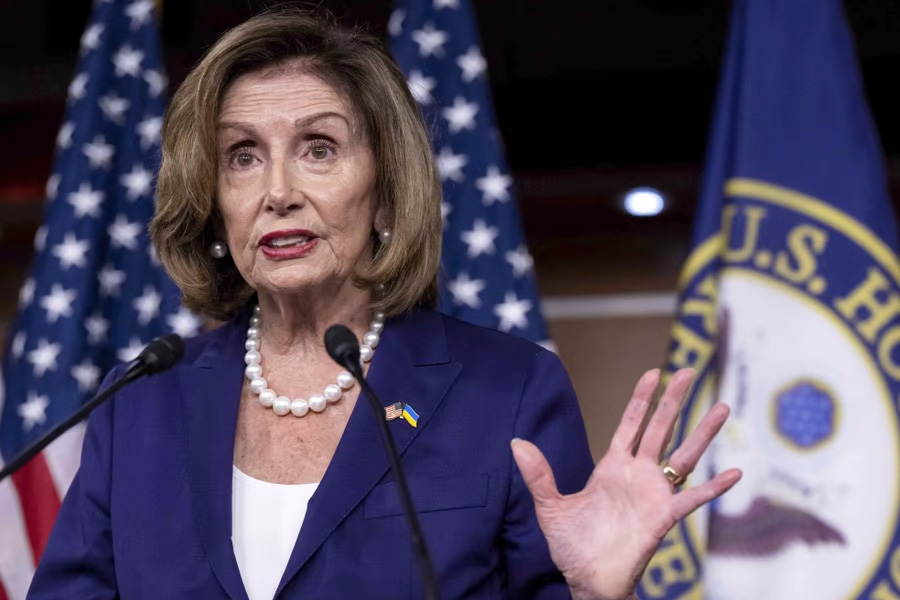The Philippines called on the United States and China Tuesday to “ensure continuing communication” amid concerns over US House Speaker Nancy Pelosi’s scheduled visit to Taiwan.
Malaysian state media reported that Pelosi landed in Kuala Lumpur on Tuesday, her second destination on an Asian trip that has caused outrage in Beijing over a probable visit to Taiwan.
Beijing considers Taiwan its territory and has repeatedly warned that the visit would be viewed as a significant provocation.
According to the official news agency Bernama, Pelosi arrived at a Malaysian air force base ahead of discussions with the prime minister and the speaker of the lower house of parliament.
Her schedule after Singapore and Malaysia includes trips to South Korea and Japan, but the idea of a visit to Taiwan has dominated speculation.
Pelosi is expected to visit Taiwan on Tuesday night, despite China’s repeated warnings that the democratically self-governing island is part of its territory.
There have been reports she will also make a quick detour in Clark, Pampanga, a former US military base.
The Department of Foreign Affairs (DFA) said they were closely monitoring the development when asked about Pelosi’s possible stopover.
Close monitoring
“The Philippines is closely monitoring developments in this regard. It is important for the US and China to ensure continuing communication to avoid any miscalculation and further escalation of tensions.
We trust that China and the United States will be responsible actors in the region,” DFA spokesperson Teresita Daza said.
The DFA also said they didn’t receive any request from the US government or from the US Embassy.
“The DFA has not received any request from the US government or their Embassy in Manila for Speaker Pelosi to transit and/ or visit the Philippines as part of her current swing of visits to the region,” it said.
White House National Security spokesperson John Kirby said that Pelosi is entitled to go where she pleased.
“The speaker has the right to visit Taiwan,” Kirby said.
“There is no reason for Beijing to turn a potential visit consistent with longstanding US policies into some sort of crisis,” he added.
Kirby cited intelligence that China was preparing possible military provocations that could include firing missiles in the Taiwan Strait or “large-scale” incursions into Taiwanese airspace.
He said Pelosi was traveling on a military aircraft and that while Washington does not fear a direct attack, it “raises the stakes of a miscalculation”.
Taiwan’s military on Tuesday said it was “determined” to defend the island against increased threats by China over the potential Pelosi visit.
Kirby reiterated, however, that US policy was unchanged toward Taiwan.
This entails backing its self-governing government but internationally acknowledging Beijing as superior to Taipei and opposing a formal declaration of independence by Taiwan or a forcible takeover by China.
The Taiwanese government has kept mum on Pelosi’s visit.
When queried by reporters on Tuesday, Premier Su Tseng-chang would not confirm the visit but praised Pelosi for her support.
According to Taiwanese publication Liberty Times, Pelosi would arrive on the island Tuesday night, see Tsai the next day, and depart in the afternoon, citing unknown sources.
Chinese Ambassador to the United Nations Zhang Hun on Monday said the visit would be “very much dangerous, very much provocative.”
If it happens, “China will take firm and strong measures to safeguard our sovereignty and territorial integrity,” he said.
American officials often make discreet visits to the island to show support, but a Pelosi trip would be higher-profile than any in recent history.
Gab Humilde Villegas with reports from AFP
